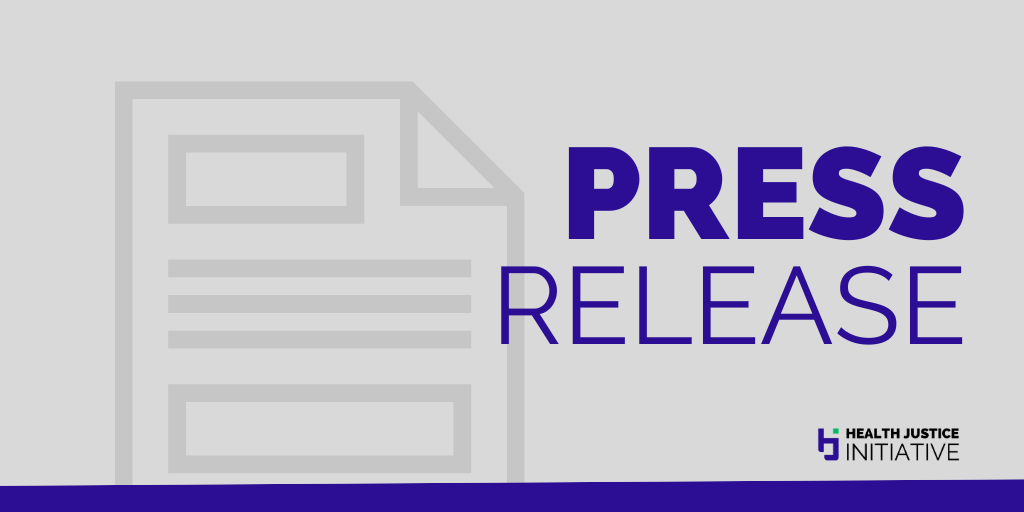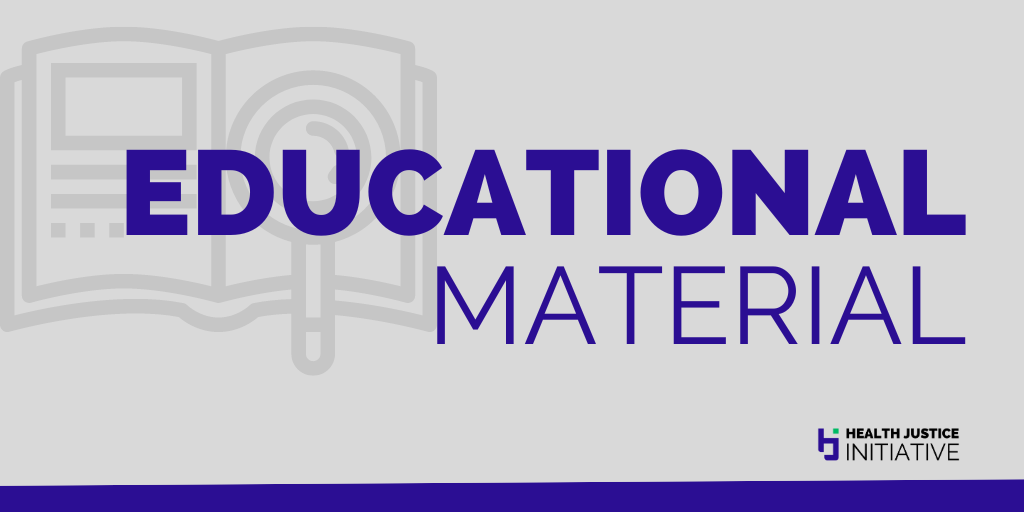Joint Statement in Response to South African Competition Commission Decision to Drop Investigation Against Vertex Pharmaceuticals on Treatment for Cystic Fibrosis
As organisations working to ensure equitable access to medicines, including lifesaving cystic fibrosis (CF) modulator treatments in South Africa, and around the world, we are deeply dismayed and alarmed by the South African Competition Commission’s (Commission) decision of 11 December 2024 to accept what are inadequate and clearly inequitable undertakings by Vertex; and not proceed with its investigation into the abuse of its monopoly on life-saving medicines for all people living with CF in South Africa.
We are concerned that the Commission has fallen victim to Vertex’s well known and aggressive PR and legal strategy – designed to safeguard its global patent monopoly at all costs. The real victims of this decision by the Commission are the most vulnerable South African children and young people who rely on the public health sector, who are not rich, and who have little or no medical scheme cover. These patients do not currently, and will not get access to this medication because of Vertex’s patents, and secretive, limited access and excessive pricing strategies.
Contrary to the wholly misleading and misinformed headline of the Commission’s media statement dated 11 December 2024, access to CF medication in South Africa has not been ‘’secured’’.
- Under the terms of Vertex’s undertakings and its recent deal – designed to end a comprehensive and compelling legal challenge to the drug company’s patent abuse at the High Court in South Africa – only those with high end medical scheme cover / insurance stand to gain access to this lifesaving medicine.
- In South Africa, only about 16% of people overall have medical scheme cover. Whilst it is unclear exactly how many CF patients have access to the treatment via medical schemes selected by Vertex, the South African CF Association (SACFA) have confirmed that 63% of all eligible South African CF patients are excluded from this ‘’deal’’.
- For CF patients in the public sector, or with less comprehensive medical scheme/insurance coverage, nothing has changed as a result of the undertakings made by Vertex to the Commission – which the latter have justified as the basis for closing its investigation – except of course, the alarming level of health inequality that they are facing.
The exact terms of the Vertex deal, concluded in April 2024, which led to the withdrawal of the Nel Vs Vertex case at the High Court, and the undertakings it has now made to the Commission remain completely opaque with no public information on price, scheme names, sector coverage, duration, or any number of other questions essential to reassuring CF patients, their families, the public, and indeed the regulatory and health authorities on the appropriateness, effectiveness, fairness, and sustainability of the “agreement’’ or the “undertakings”.
Heinchen Kok, is a South African teacher, and the mother of a daughter living with CF who despite the Commission’s now concluded investigation (and the ‘’undertakings’’ given by Vertex leading to a non-referral of the matter to the Competition Tribunal) still does not qualify for access. There is no defensible reason for this. Heinchen said:
“I am devastated by this decision. I expect the cynical, profit-driven decision making from Vertex to consistently stand in the way of my child getting the medicine she needs to survive, but I had hoped that the regulatory authorities would value her life and use the powers it has to act to stop them letting her die in order to protect their patent and profits. Does her life not count? Do the lives of very sick or poor South Africans without health insurance and medical scheme cover not count? I do not understand this decision, and I need the Commission to explain it to me, and to every single family and patient living with and affected by CF, as a matter of urgency. I also call on them to review the evidence and to immediately re-open the investigation.”
Alarmingly, and part of a pattern of Big Pharma conduct in South Africa, Vertex’s CF medicine remains unregistered in South Africa, forcing patients and providers to import the medicine and rely on an administratively burdensome process called a ‘’Section 21’’ approval (see below).
- This means the public health sector is prevented from undertaking open procurement at a national level.
- This also makes CF patients and treatment providers who are able to access the treatment under the opaque terms of the highly inequitable deal made by Vertex wholly reliant on Section 21 procedures under South Africa’s Medicine Act to import the medicine – a process which must be repeated every six months, causing additional administrative burdens and also anxiety, and uncertainty for families and patients. This is not a sustainable way to address a chronic treatment need.
- Further, what little medical scheme coverage is being offered, is obscure and uncertain.
- Finally, the Vertex ‘’patient assistance programme’’ does not promote equity, is far from transparent, nor sustainable and the price remains undisclosed.
So, whilst we are relieved that some South African patients will have access to a game changing medicine, the Commission and the South African government must be focused, as we are, on the lives of every eligible patient. After all, equity – a principle also affirmed in South Africa’s Constitution – is what the government has promised under the pending National Health Insurance scheme.
We (South African Cystic Fibrosis Association, Right to Breathe Campaign, Health Justice Initiative, Vertex Save Us, Just Treatment, Section 27, Treatment Action Campaign, People’s Health Movement South Africa, and Cancer Alliance) therefore do not support the Commission’s decision to prematurely end its investigation into Vertex, because the access undertakings made by the company are inadequate: the price remains secretive, the process for financial assistance is non-transparent, and the outcomes are inequitable.
We call on the Competition Commissioner, Ms Doris Tshepe, to meet with every CF patient and family currently excluded from this arrangement to explain this outcome, and to urgently review the evidence before her so that the Commission can re-initiate its inquiry into Vertex’s anti-competitive conduct and the lack of access it causes.
As organisations and CF patients and families affected by this outcome, and in the public interest, we will be seeking an urgent meeting with the Commission – and in that engagement with the Commission, we will seek to establish the following:
- Have Vertex given an assurance that all South African CF patients will get fair, timely, and affordable access under the deal currently in place – including those with lower end or no medical scheme cover/ insurance and including those patients in need in the public health sector?
- Have Vertex committed to registering their product with SAHPRA, therefore inter alia enabling transparency and opening the way for the state to bid in an open tender for the medicine for South African patients? If not, why not? If yes, by when? What is the delay in the registration process (which would enable, in part, some price transparency too)?
- Have Vertex revealed to the Commission the price at which its hand-picked medical schemes in South Africa; some CF patients; and the South African Department of Health can/may procure this medicine ?
- What is the legal and funding relationship between Vertex and the South African ‘’not for profit group’’ that it has designated to support some patients with subsidised access through a financial assistance programme?
- What legally binding assurance has the Commission been given that Vertex will not terminate its current deal, inadequate as it may be?
- Will the Commission explain to the public why it stopped the investigation – when many patients with CF are saying that they cannot access this medicine anytime soon, – as it has chosen to define this as an ‘’access secured’’ moment?
Without urgent action, including by the South African government and regulatory bodies, the poorest and most vulnerable South African CF patients will continue to suffer and die without access to treatment made by Vertex – but where a generic version could cost less than $6 000 USD to manufacture, all while Vertex charges approximately $326 000 per patient per year – in many parts of the world.
We cannot allow the manipulation of South Africa’s laws, regulations, and health system to go unchecked in the name of one drug company’s self-interested monopoly greed, particularly when South Africans are getting more sick and dying as a result. We reiterate our call for the Commission to re-initiate the investigation as a matter of urgency.
Members of the CF community and the public that wish to share information and personal testimonies are encouraged to write to the Commission at: [email protected]
— ENDS —
Please direct all media enquiries and interview requests to Emma Hughes: [email protected]
Download the full statement here.



